Hair. We’d all be lying if we said we didn’t care about our hair or if the health of our hair didn’t cross our mind at some point. A person’s hair has physical & health significance. Hair symbolizes physical strength & beauty! It is a symbol of instinct, seduction and physical attraction – whether you wear it long, short, cropped or curly. More importantly, the health of a person’s hair, is very often indicative of overall health.
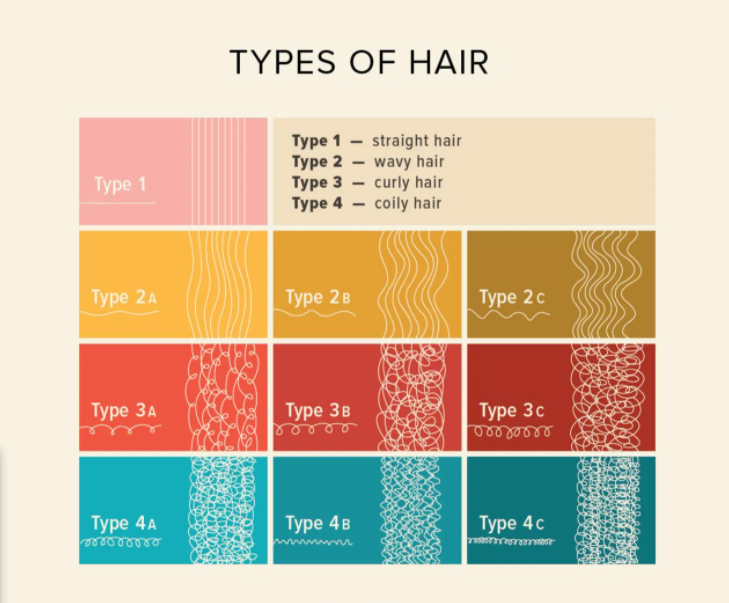
Like everything else, hair too has a hair growth cycle and any disruption or interference in this cycle could cause hair loss which is a very common problem. Along with hair loss, people experience other hair problems such as varying degree of hair fall, hair thinning, poor growth, loss of hair volume, lack of shine, change in texture, lack of bounce and many more.
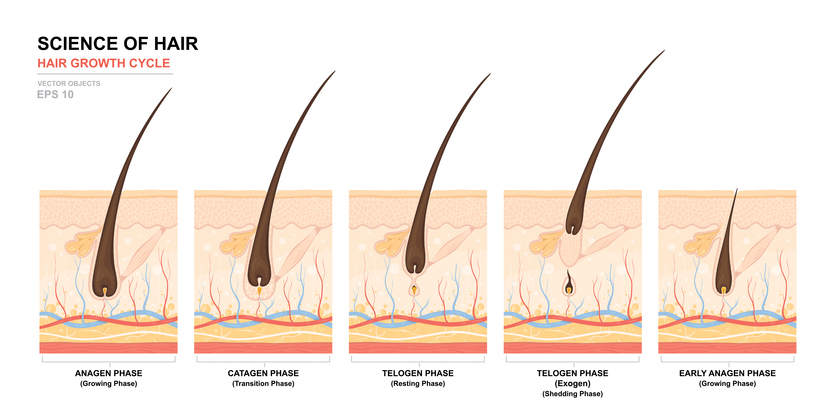
Now, while some of these problems are complicated and hard to control, the good news is that most problems associated with hair loss & damage are the more common ones, within our control to correct and resolve. So, to get down to basics, here we will be discussing the most important factors that affect the health and growth of hair, what causes hair damage & loss and finally best practices to prevent hair loss & promote regrowth!
Uncontrollable Factors Affecting Hair Loss, Growth & Damage
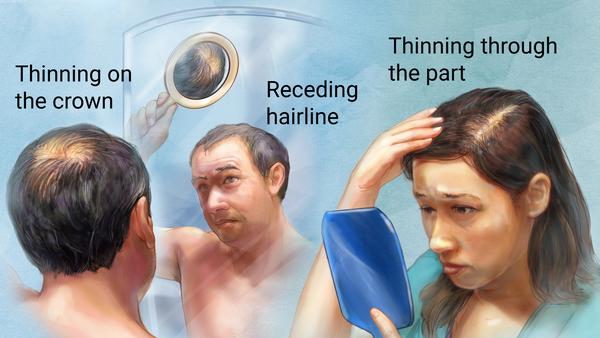
Genetic and hormonal disturbances are often blamed for the problem of hair loss, but there are other factors that adversely affect hair growth & overall health including varying degree of hair fall, hair thinning, poor growth, loss of hair volume, lack of shine, change in texture, lack of bounce and many more.
Genetic
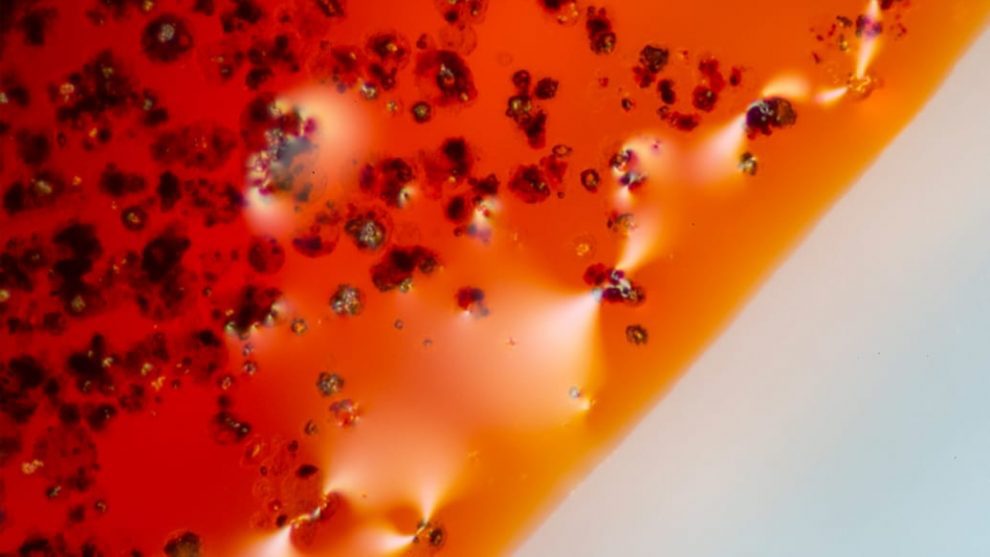
Genes are often blamed for the problem of hair loss. Genetic factors are not only responsible for hair color but also for hair density, texture, and growth. Male and female pattern baldness is a result of hereditary hair loss. In males with a genetic susceptibility to baldness, testosterone hormone is converted to a more potent form called dihydrotestosterone (DHT), which binds to cells in hair follicles and damages them. The damage caused to hair follicles results in male pattern baldness. In females, the hormone estrogen slows down hair growth and results in a thinner shaft of the hair.
Hormonal
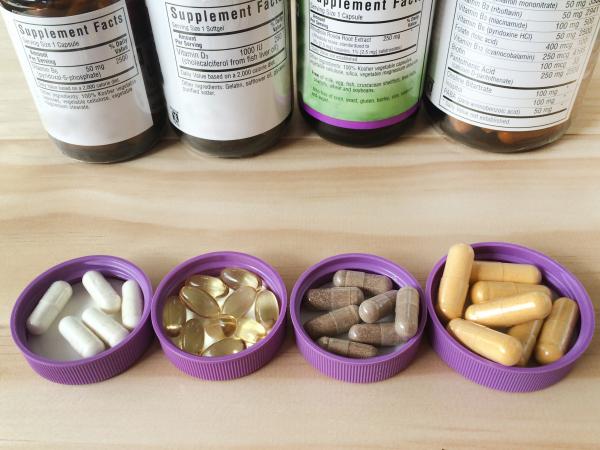
Both female and male hormones contribute significantly to hair health and growth. The hormone androgen is responsible for hair growth in men and to a small extent in women. Levels of androgen decreases as we age and leads to slow growth, hair thinning, and less lustrous hair. In contrast to androgens, male hormone testosterone and female hormone estrogen also affect hair health. The levels of estrogen also decrease after menopause leading to hair loss in women with genetic susceptibility.
Health Issues & Medical Disorders

Various medical conditions such as thyroid problems, scalp infections, lupus, lichen planus, and alopecia areatea can adversely affect the general condition of the hair.
Hair & Scalp Condition
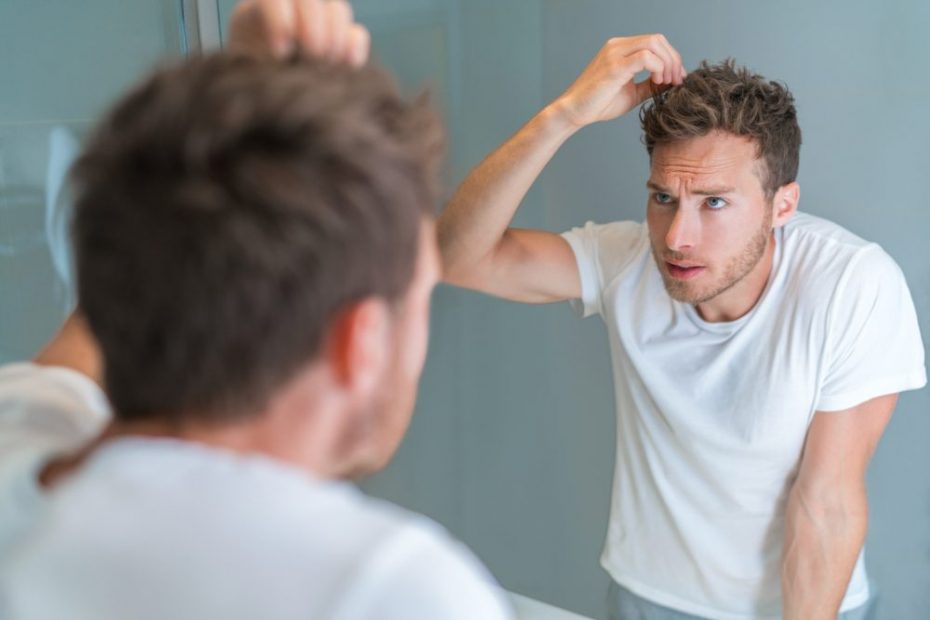
There are a number of factors that can contribute to slower hair growth. These are ringworm infection, folliculitis or inflammation of the hair follicles, psoriasis and seborrheic dermatitis. Hair that is dry is prone to breakage and hair loss.
Environment & Pollutants
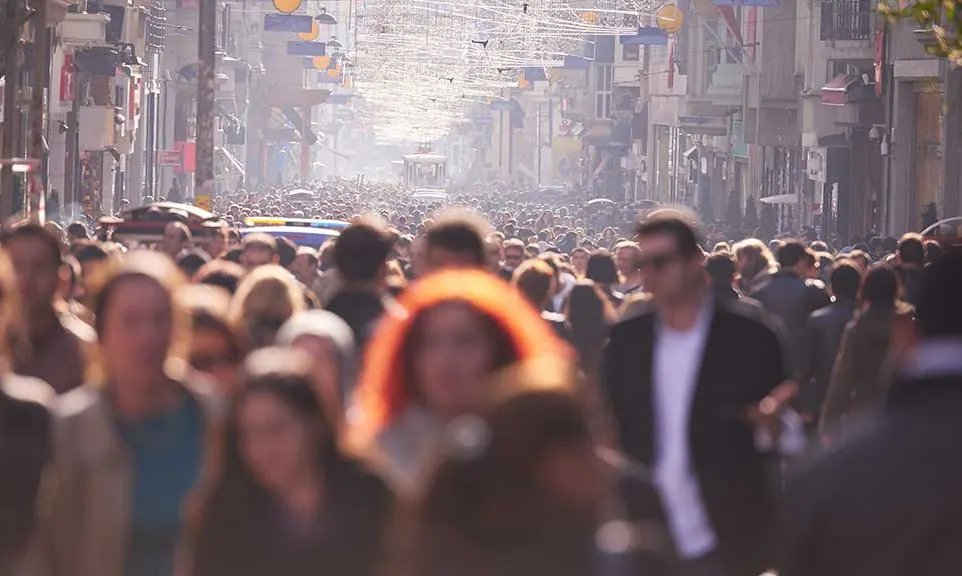
Factors include light (UV and visible light), salt and chlorine water. These can all contribute to the breakdown of chemical bonds within hair structure. Heat from sunlight can also dry out hair and make it susceptible to damage. A humid environment opens up pores and cuticles leaving them exposed to damaging influences.
Lifestyle Habits You Can Adopt For Healthy Hair!
While factors like heredity genetics, hormones and medical disorders such as Thyroid are irreversible and others such as weather, environment & pollutants, and normal hair aging are not within our control, there are other more common factors that are, thankfully, within our control. Read on to find out how you can improve hair health & growth and prevent hair loss!
A Balanced Diet & Nutrition
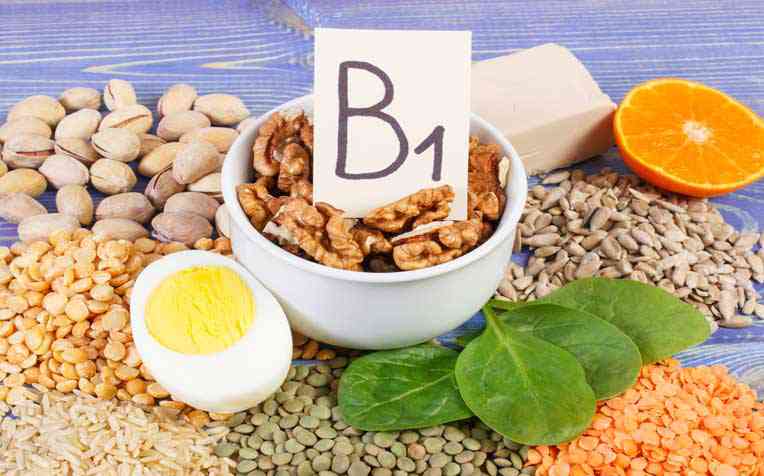
If you are what you eat, then diet plays into how your hair grows too! Good nutrition & a balanced diet, rich in essential nutrients, contributes the best possible condition for building strong, radiant locks. If you are concerned you may be nutritionally deficient, see your doctor; they can perform a blood test to confirm.
Hair is made of a natural protein called keratin. Proteins are the building blocks of hair. Protein-rich foods – eggs, almonds, chicken, oats, cottage cheese, Greek yogurt & milk – can therefore help to keep hair strong and healthy. People who don’t get enough protein slow the rate of their hair growth.
- Vitamins
Vitamins also trigger the hair cycle so it is essential to evaluate the content of vitamins in the body before taking any multivitamin supplements. Vitamin A could halt hair growth but Vitamin B is especially helpful in having healthier hair growth. Sources of Vitamin B include Whole grains (brown rice, barley, millet) Meat (red meat, poultry, fish) Eggs and dairy products (milk, cheese) Legumes (beans, lentils) Seeds and nuts (sunflower seeds, almonds) Dark, leafy vegetables (broccoli, spinach, kai lan) Fruits (citrus fruits, avocados, bananas)
- Minerals
Important minerals that promote hair growth are iron, zinc, iodine, and silica. Research shows that nutritional deficiencies—like iron deficiency anemia or a zinc deficiency—may result in hair loss. Eating plenty of Vitamin B food sources along with iron and zinc-rich foods like dark leafy greens, whole grains, lean beef, legumes, nuts, and seeds can help prevent deficiencies.
- Omega-3s
Studies also show a promising connection between Omega-3s and strong hair growth. Foods rich in Omega-3s include oily fish like salmon and mackerel, nuts and seeds like flax and chia seeds, and flaxseed and soybean oils.
Exercise Frequently
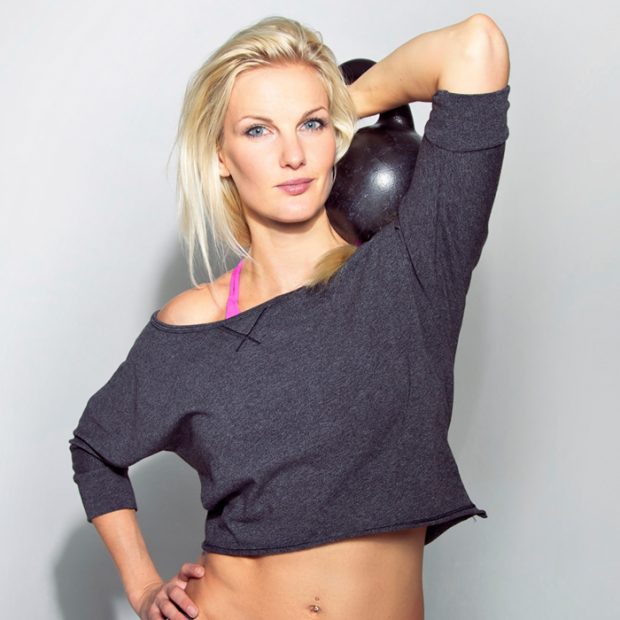
When you exercise, there is an improvement in your general health. Working out increases testosterone and testosterone triggers facial hair growth. Exercise boosts body health and promotes a strong hair growth cycle. It increases the blood flow to scalp and promotes circulation around the scalp, resulting in better hair growth. People can help nourish their hair follicles by performing 30 minutes of cardiovascular exercise at least three times per week. Working out also triggers bodily recovery, which can help replenish hair and skin.
Avoid Stress

Stress is considered one of the most unusual causes of sudden hair loss. High amounts of stress can eventually lead to hair falling out, either in small amounts or in larger patches.
Research indicates that stress compromises & adversely affects the internal systems & natural process of hair growth. Stress releases high cortisol levels in the body that may cause hair follicles to shed, go into a “resting” phase or stop growing entirely.
While stress reduction and improved sleep can reverse temporary shedding for many people, persistent thinning or visible baldness often requires professional assessment. A specialist can help distinguish between reversible causes and conditions that benefit from targeted interventions, and advise on non-surgical, customized options when appropriate.
For readers exploring restorative alternatives that preserve a natural look, resources such as Hair Replacement Studio Atlanta provide individualized consultations and tailored approaches for both men and women. Speaking with an expert early can clarify realistic expectations and create a step-by-step plan that complements lifestyle changes.
Stress can contribute to the onset of alopecia areata (where the body’s immune system attacks hair follicles) and severe psychological stress leads to a condition of temporary hair loss disorders like telogen effluvium.
Pressure from work, family, and other societal pressures, is sometimes inevitable, but stress overall is a somewhat controllable factor that affects hair health. Finding ways to keep stress under control is essential. Calming rituals like yoga, meditation, or just taking a few deep breaths when life gets crazy can all go a long way.
Get Proper Rest & Sleep
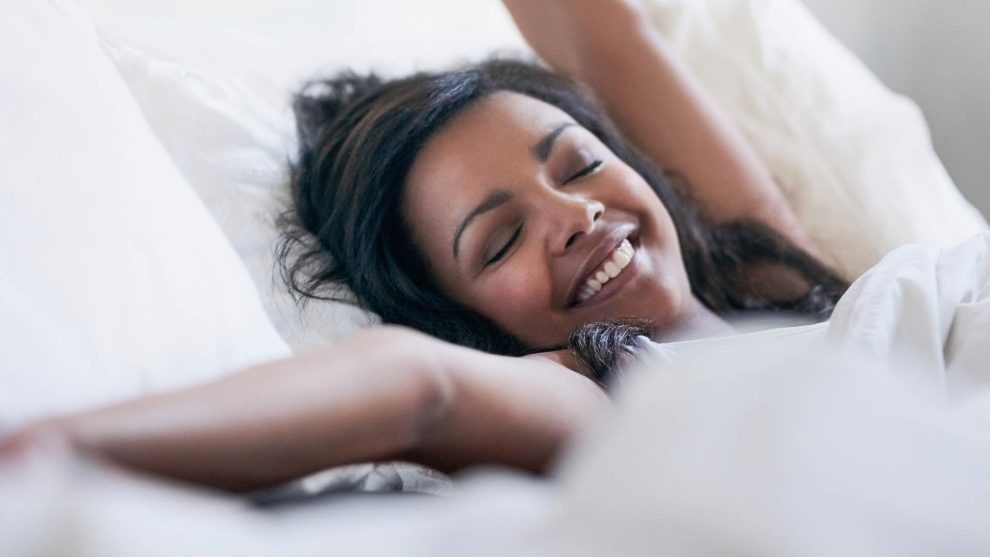
Stress- sleep and hair loss are all interrelated because stress can highly affect sleep quality and quantity.
A sound sleep at night is required for protein synthesis of the hair and releases the growth hormones also which is very important for the overall hair health. Our body produces melatonin which is a hormone that helps in regulating the body’s sleep cycle and increases hair growth. If the body’s melatonin levels are down then there is a chance of extreme hair loss. Lack of sleep can lead to stress which forces the hair follicle in a premature resting state which is again followed by a hair shedding phase.
According to most research sleep is important for hair growth as that can reduce the stress level which may help to reduce hair loss specifically Androgenic Alopecia. So make it a point to rest when you are tired and try to get at least 7 hours of sleep daily. Control and balance your physical and emotional health by adopting a healthy lifestyle.
Other Lifestyle Factors To Avoid
Various lifestyle factors can affect hair growth. Excessive smoking has been linked to hair loss, baldness and premature hair ageing. It restricts the blood vessels and affects blood flow throughout the body. Slowing the blood flow in hair follicles retards hair growth. Toxins in the smoke can also damage hair follicles and results in follicular inflammation due to the production of pro-inflammatory cytokines. So, living healthier and taking everything in moderation is key to promote a fit body and healthy locks!
Avoid Mechanical Factors
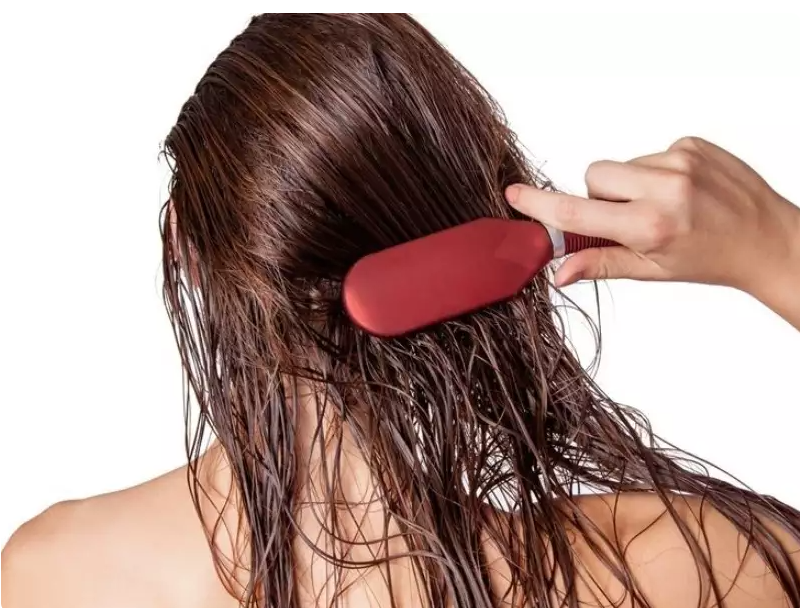
This includes combing, back-combing, and the use of a hair curler. These methods can rub against the hair cuticles causing them to flake and tear. Wet hair is particularly susceptible as the cuticles are swollen, potentially exposing the inner cortex. Extensive brushing can lead to traction alopecia and can cause breakage in dry and brittle hair.
Avoid Chemical Factors
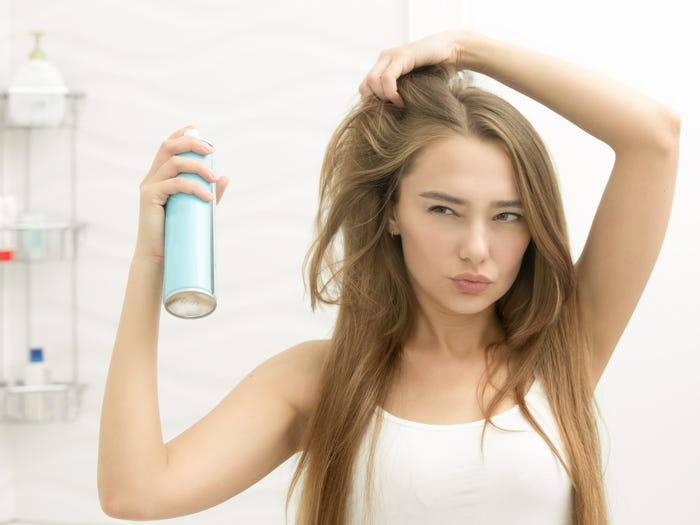
- Cosmetic procedures
Cosmetic procedures including coloring, lightening and perming services, which are designed to penetrate the outer protective cuticle, so as to affect the inner cortex directly. Perming chemicals break down disulphate bonds, which hold together the polypeptide chains of keratin. If hair and scalp are over exposed to these chemicals, severe damage can occur.
- Harmful Hair Products
The use or prolongated use of harmful hair products could also lead to hair loss. Certain hair products contain harsh chemicals that weaken and damage hair, leading to temporary hair loss. Shampoos containing polyethene glycol and alcohol should be avoided as it makes hair brittle. Hair dyes containing paraphenylenediamine can cause scalp irritation and allergic reactions, which may ultimately lead to hair thinning. So, always opt for a natural, organic and herbal-based product that promote and maximize healthy hair growth.
Bottomline

When it comes to your hair’s health, you may not always feel like you’re getting the results you’re after. There is a lot, however, that is within your control. Eating a healthy diet, reducing stress levels, and creating a healthy environment by spending time in nature (and no smoking!) are important ways to keep hair healthy and strong at any age.


It’s very good blog! For sharing content and such nice information for me. I hope you will share some more content about. Please keep sharing!